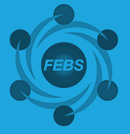
Preliminary programme
Day 1: Organotypic Retina Cultures – Foundations & Setup
Morning Session: Basics & Methodology
• 9-9.15: Welcome and event organization: Henri Leinonen
Lecture session 1: Introduction to Organotypic Retina Cultures
• 9.15-10.00: History, basics, and key applications 1/2: Blanca Arango-Gonzalez
• 10.00-10.45: History, basics, and key applications 2/2: Blanca Arango-Gonzalez
• 10:45-10:50: Short break
• 10:50-11:35: Development of serum free organotypic retinal explant cultures: A historical overview: François Paquet-Durand
LUNCH BREAK 11.35-12.30
Lecture session 2: Experimental Setup & Best Practices
• 12.30-13.15: Dissection, media composition, and maintaining tissue viability in rodent: Catherine Hottin
• 13.15-14:00: Primate and porcine ex vivo retinas: Ana Almansa García, Frans Vinberg
Afternoon Session: Keynote and flash talks
• 14.05-15.00: Keynote lecture 1: Ocular drug delivery
• 15:00-15.30 Selected abstract flash talks (1-10)
COFFEE BREAK 15.30-16:00
Evening Session: Scientific Publishing in Retinal Research
• 16:00-16:30 FEBS Press Representative (Daniela Ruffell, PhD)
Lecture session 3: Writing & Publishing High-Impact Research
• 16.30-17.30 Choosing the right journal, structuring a manuscript, and responding to reviewers: Raunak Sinha, Henri Leinonen(other PIs)
Workshop 1: Manuscript Abstract & Figure Preparation
• 17.30 à: Participants can receive feedback on pre-submitted materials
18.00- POSTER SESSION 1 & GET-TOGETHER & EVENING SOCIAL
Evening Session: Scientific Publishing in Retinal Research
- Lecture session 3: Writing & Publishing High-Impact Research
- 15.30-16.15 Choosing the right journal, structuring a manuscript, and responding to reviewers
- Workshop 1: Manuscript Abstract & Figure Preparation
- 16.15-17.00: Participants can receive feedback on pre-submitted materials
17.00- POSTER SESSION 1 & GET-TOGETHER & EVENING SOCIAL
Day 2: Applications in Disease Modeling & Drug Testing
Lecture session 4: Disease models, Organotypic Cultures and Therapeutic aspects
• 9.00-9.45: Inherited retinal degenerations: Francois Paquet-Durant
• 9.45-10.30: Age-related macular degeneration: Alexa Klettner
• 10.30-10.40 short break
• 10.40-11.25: Diabetic retinopathy and oxidative stress: Maria Miranda
• 11.25-12.10: Glaucoma: Elena Vecino
LUNCH BREAK 12.10-13.00
• 13:00-13:45 Special lecture: Adult Müller glia cultures: Xandra Pereiro
• 13.45-14. 15: Selected abstract flash talks (11-20)
Afternoon Session: Tutorial session 1
• 14.15-15.45: Demo/tutorial Session: Virtual set up of explants. Discussion of all things that go wrong, points of extra care, common pitfalls and troubleshooting. Coordinators: Xandra Pereiro, Antolin Canto, Catherine Hottin, Ana Almansa Garcia
COFFEE BREAK 15.45-16.15
Evening Session: Grant Writing & Funding Strategies
Lecture session 5: Writing Competitive Grant Applications
• 16.15-17.00: Structuring proposals for funding agencies (e.g., ERC, NIH, Marie Curie): Petri Ala-Laurila, Frans Vinberg (other Pis)
• Workshop 2: Developing a Winning Grant Proposal
• 17.00- Participants can get feedback on presubmitted research proposals
17:15- POSTER SESSION 2 with SNACKS
Day 3: Organotypic Retina Cultures in testing advanced therapy and drug delivery aspects
Lecture session 6: Gene therapy and RNA approaches
• 9:00-9:05: CONFERENCE PICTURE, BE THERE!
• 9.05-9.50: Testing AAV vectors, CRISPR-based approaches, and alternative gene-editing tools: Yuanyuan Chen
• 9.50-10.25: RNA interference, RNA therapeutics: Marco Bassetto
• Short break 10.25-10.30
Late morning/Afternoon Session: Ocular drug delivery
10.30-11.30: Keynote 2 – Biochemistry at the Core of Retina
Research: Past, Present, and Future
LUNCH BREAK 11.30-12.30
Lecture session 7: Studying barriers and Drug Delivery
with Tissue Cultures
• 12:30-13:15: Porcine Single-Eye Retinal Pigment Epithelium Cell Culture for Barrier and Polarity Studies (1/2): Alexa Klettner
• 13.15-14.00: Studying drug delivery with explaints: Blanca Arango-Gonzalez
Evening Session: Industry & Venture Science in Retinal Research
• 14:00-14.45: Industry roles for retinal researchers, biotech innovation, and venture science: Jukka Puoliväli, Giedrius Kalesnykas
COFFEE BREAK 14:45-15:15
• 15.15-16.00: Spinning off from academia and start ups: Teemu Turunen, Frans Vinberg
• 16.00-16.30: How to attract angel investors or venture capital: TBD
• 16.30-18.00: FREE TIME
18:00-late: LAKE KALLAVESI CRUISE & NETWORKING
Day 4: End-point assays + functional testing in living retinas
Lecture session 9: Conventional end-point assays in organotypic retina culture experiments
• 9-9.45: Histology/IHC staining and & microscope: challenges and common pitfalls Catherine Hottin, Ana Almansa Garcia, François Paquet-Durand, Blanca Arango-Gonzalez
• 9:45-10:30: Apoptosis and other sensitive cell death assays Catherine Hottin, Ana Almansa Garcia, François Paquet-Durand, Blanca Arango-Gonzalez
• Break 10:30-10:40
• 10:40-11:25 Assays with homogenates: Immunoblots, qPCR, ELISA etc: Henri Leinonen lab
• 11:25-12:10 Preparation for omics (RNA-seq, proteomics etc.) Henri Leinonen Lab
LUNCH BREAK 12.10-13.00
Lecture session 10: Electrophysiology / Functional Analysis
• 13.00-13.45: Ex vivo electroretinogram: Teemu Turunen
• 13:45-14:30: Patch-clamp: Petri Ala-Laurila
• 14:30-15:15 Single-cell recordings from photoreceptors: Raunak Sinha
COFFEE BREAK 15.15-15.45
• 15.45-16:30: Selected abstracts flash talks (21-30)
• 16:30-17:00 FEBS Representative Jan Riemer
Evening Session: Choosing the Right Postdoc & Career Paths
• 17:00-18:00 Panel Discussion: Surviving & Thriving in a Postdoc Position – young generation PIs
Insights from Pis. Including: Academia vs. Industry, key considerations, networking, and career trajectory planning
18.00 - POSTER SESSION 3 with SNACKS
Day 5: The Retina as a Model for Neuroscience Applications
9.00-9:50 Keynote lecture 3: Critical Factors for Success in Retinal Research: A Personal Perspective
• Short break 9:50-10:00
Lecture session 11: The Retina as an Accessible Model for neuroscience and CNS Research
• 10-10.45: Synaptic transmission: Frans Vinberg
• 10:45-11:10 Complex neuronal circuits: Petri Ala-Laurila
LUNCH BREAK 11.10-12:00
• 12:00-12:20 Complex neuronal circuits: Raunak Sinha
• 12.20-13.05 Synaptic plasticity: Henri Leinonen
• 13:05-13:15: Short break
Afternoon Session:
Demo/tutorial Session based on video material:
• 13.15-14.00: Neuronal Activity Recording in Isolated Retinas: TBD
COFFEE BREAK 14.00-14.30
• 14.30-15.30 Group discussion: Ex vivo versus in vivo – opportunities, challenges and pitfalls: everyone, what did we learn during this week?
• Awards ceremony and pictures
15.30-16.00: Event conclusion and future ideas





